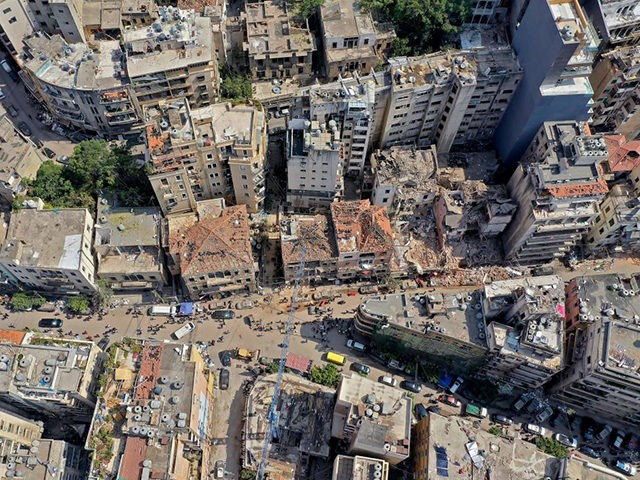Members of the global Lebanese diaspora are mobilizing a “financial bloodline” to the crisis-stricken country after a massive explosion rocked the capital of Beirut on Tuesday, causing billions of dollars’ worth of damage.
Despite being a country of just five million people, there are an estimated 15 million ethnic Lebanese people around the world, around three times the Middle Eastern country’s entire population. While expats rushed to send money back to their friends and loved ones, others have stepped up to create large-scale funds intended to help rebuild the country.
“I’ve been on the phone all morning with … our partners in order to put together an alliance for an emergency fund in light of the explosion” said George Akiki, co-founder and CEO of LebNet, a Californian non-profit aimed at helping Lebanese professionals in the U.S. and Canada, in an interview with Al Jazeera. “Everyone, both Lebanese and non-Lebanese, wants to help.”
LebNet is not the only organization mobilizing its people into action. Groups such as Social and Economic Action for Lebanon (SEAL) and Life Lebanon, have helped set up the Beirut Emergency Fund 2020, which will raise money and send it to reputable charities and organizations within the country.
Before this week’s blast, Lebanon was already reeling from the pressure of a severe economic and political crisis that has left more than half the population living under the poverty line. A large part of its economy was already dependent on remittances from abroad, although even these have slowed this year as a result of the global Chinese coronavirus pandemic.
Many harbor concerns about the possible risks of sending money to a country where mismanagement and corruption are widespread, leading to Lebanese abroad organizing ways to send money directly to the people.
“People are outraged by the mismanagement of the country and they want to help, but no one trusts the people in charge,” Najib Khoury-Haddad, a tech entrepreneur from San Francisco, told AFP. “I heard that the government has set up a relief fund but who would trust them?”
In addition to the infrastructural and economic mayhem inflicted by the blast, hospitals have also been overwhelmed by the huge number of injured or dead, as well as the damage to their own operations. According to the Lebanese Red Cross, at least 100 people were killed in the blast, while around 5,000 were left wounded.
As well as the support of Lebanese expats, countries around the world have stepped up to support relief efforts. On Thursday, Lebanon’s Resident Coordinator Najat Rochdi for the United Nations released $9 million from the Lebanese Humanitarian Fund to help meet immediate needs.
“With the emergence of new challenges due to the latest devastating event, the U.N. in Lebanon and partners are mobilized to provide immediate humanitarian assistance to the Lebanese people in support of the government’s response to this tragedy,” she said in a statement. “We are in this together, and we are committed to support Lebanon in this very difficult time.”
Follow Ben Kew on Parler, Facebook, or Twitter. You can email him at bkew@breitbart.com.

COMMENTS
Please let us know if you're having issues with commenting.